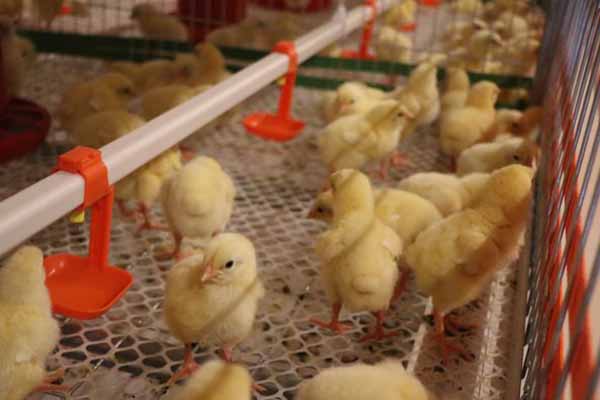Uganda Chicken Farm Automation: The Energy Saving Effect of Modern Equipment
Time : 2025-04-23
The poultry industry in Uganda has seen a tremendous growth over the years. With the rise in demand for eggs and chicken meat, farmers are always on the lookout for new and innovative ways to improve their farming processes. One of the most significant advancements in recent times is the automation of chicken farms. This not only increases efficiency but also has a remarkable energy-saving effect. Let’s delve deeper into how modern automation equipment is transforming the Ugandan chicken farming sector.
Introduction to Chicken Farm Automation in Uganda
In the past, chicken farming in Uganda was mostly manual, with farmers relying on traditional methods for rearing and managing their flocks. However, with the increasing cost of labor and the need for consistent production, many farmers have turned to automation. This shift has brought about significant improvements in the quality of chicken meat and eggs, as well as a reduction in labor costs.
Benefits of Automation Equipment in Chicken Farms
Modern automation equipment is designed to streamline various processes in chicken farming, including feeding, watering, cleaning, and monitoring. Here are some of the key benefits of implementing this technology:
1. Increased Efficiency: Automation equipment can handle tasks that would take several workers hours to complete. This not only saves time but also allows farmers to focus on other critical aspects of their business.
2. Enhanced Production: By ensuring optimal conditions for the chickens, automation equipment helps in achieving higher productivity. This, in turn, leads to increased revenue for farmers.
3. Improved Livability: Automated systems can maintain the right temperature, humidity, and air quality in chicken houses, leading to healthier birds and better egg production.
4. Energy Saving: One of the most crucial benefits of automation in chicken farming is its energy-saving effect. Let’s explore how this works.
Energy Saving Effect of Automation Equipment
Energy consumption is a significant concern in poultry farming, as maintaining the right conditions requires a considerable amount of electricity. Here’s how modern automation equipment contributes to energy saving:
1. Smart Temperature Control: Automation systems can regulate the temperature in chicken houses more efficiently than manual methods. This ensures that the chickens are comfortable, reducing the energy needed for heating or cooling.
2. LED Lighting: Modern chicken farms often use LED lighting instead of traditional bulbs. LEDs consume less electricity and last longer, which not only saves energy but also reduces maintenance costs.
3. Automated Feeding Systems: Automation equipment can dispense feed at specific intervals, ensuring that the chickens consume the exact amount required. This reduces waste and minimizes the energy used for feeding.
4. Solar Energy: Many chicken farms in Uganda are adopting solar energy as an alternative to grid electricity. With the help of modern automation equipment, these farms can harness the sun’s energy more efficiently, resulting in significant energy savings.
Case Studies: Successful Implementations in Uganda
Several Ugandan chicken farms have successfully implemented automation equipment, leading to improved production and reduced energy consumption. Here are a few examples:
1. Agriculture Co-op: This poultry farming cooperative installed automated systems in their chicken houses, resulting in a 20% decrease in energy consumption. The improved production allowed them to increase their revenue by 30%.
2. Green Chicken Farm: This farm adopted solar energy and automation equipment, reducing their electricity bill by 40%. The enhanced productivity led to a 25% increase in revenue.
3. Golden Eggs: By installing an automated feeding system, this farm reduced the amount of food they wasted by 15%. The energy-saving effect resulted in a 10% decrease in their electricity consumption.
Conclusion
The implementation of automation equipment in Ugandan chicken farms has revolutionized the poultry industry. Not only does it improve production and efficiency, but it also has a remarkable energy-saving effect. By adopting modern technologies, farmers can not only reduce their operational costs but also contribute to the conservation of natural resources.
In conclusion, the automation of chicken farms in Uganda is a game-changer. As more farmers embrace this technology, we can expect to see increased productivity, reduced energy consumption, and a more sustainable poultry industry.












